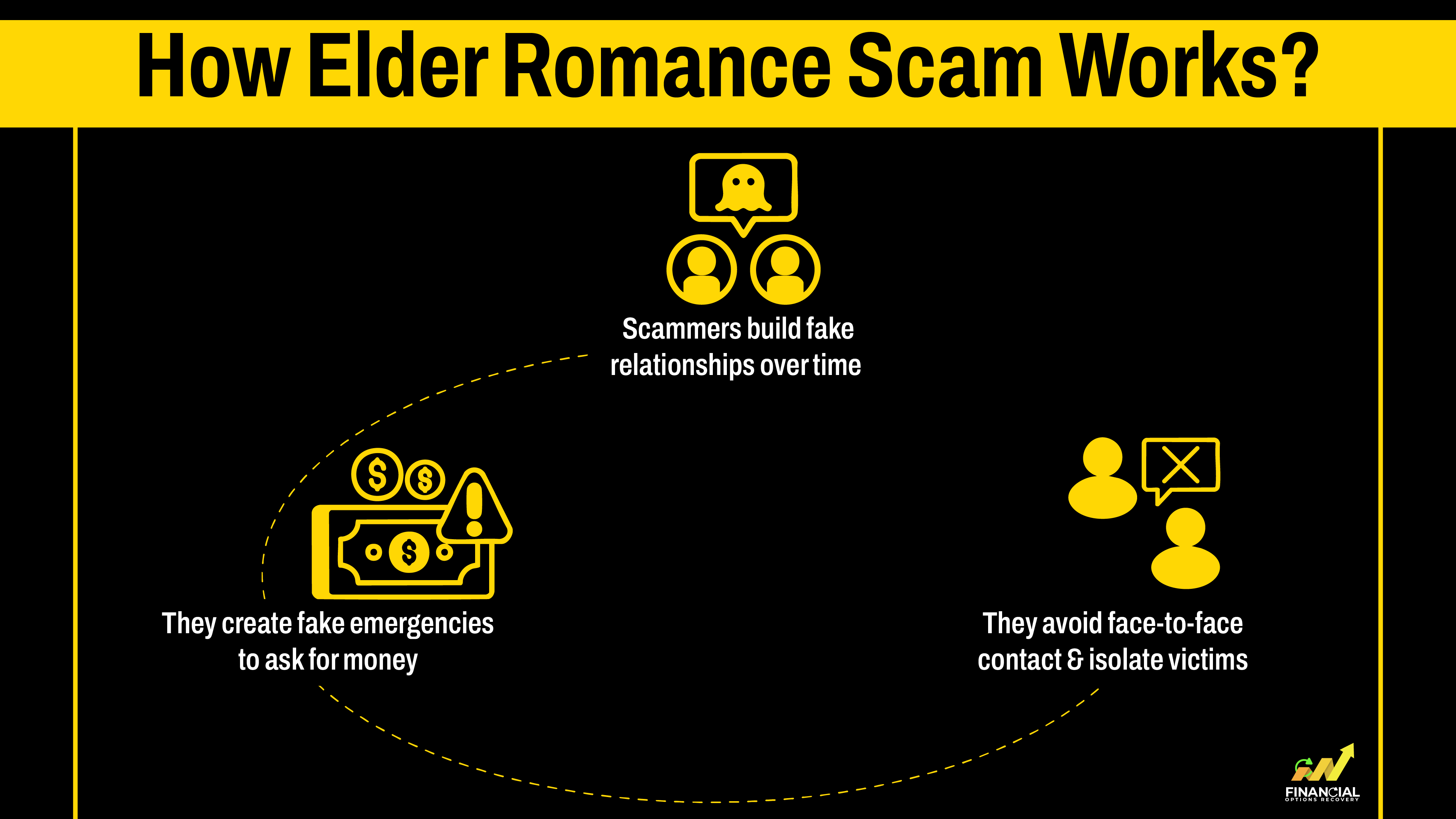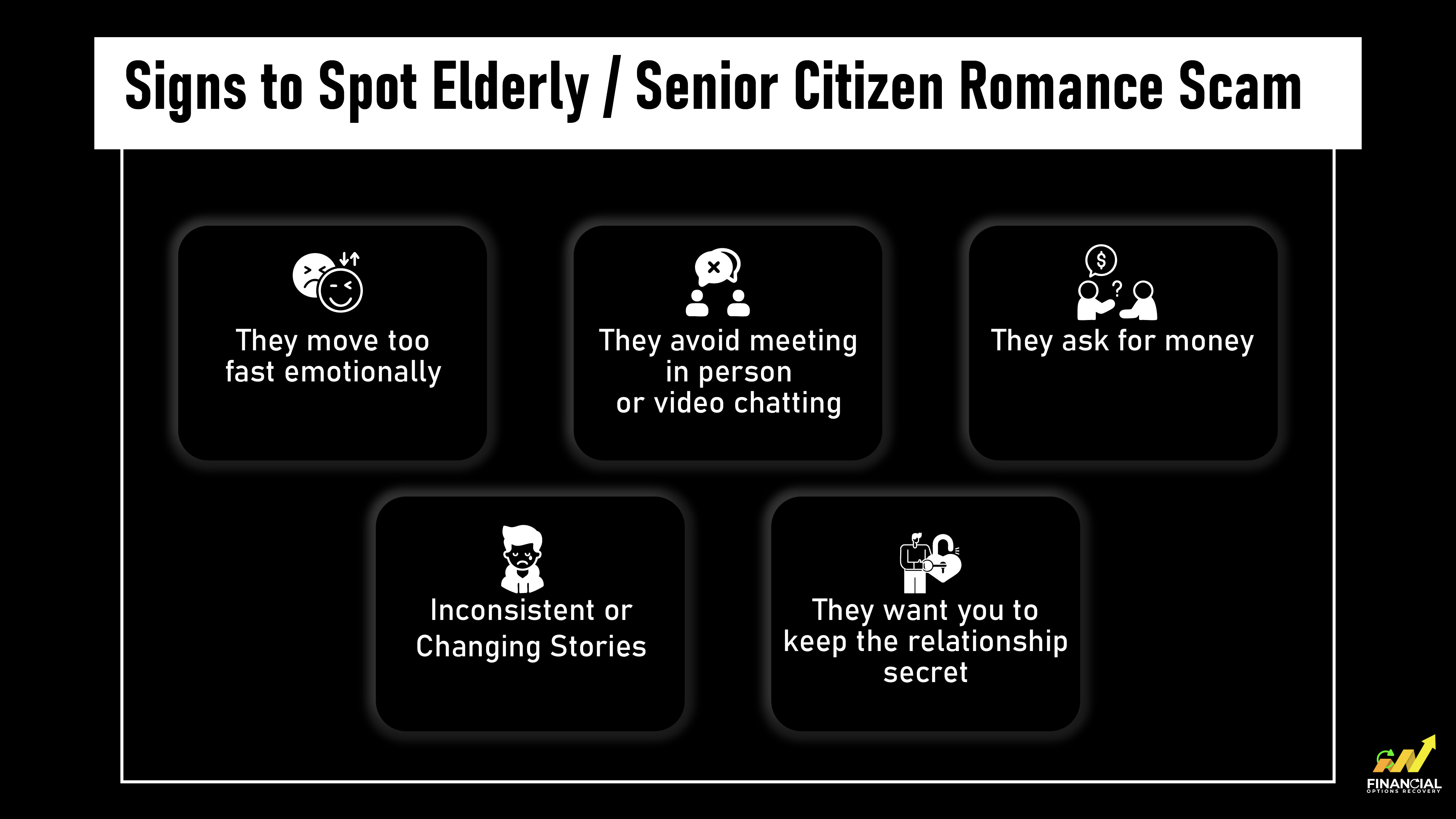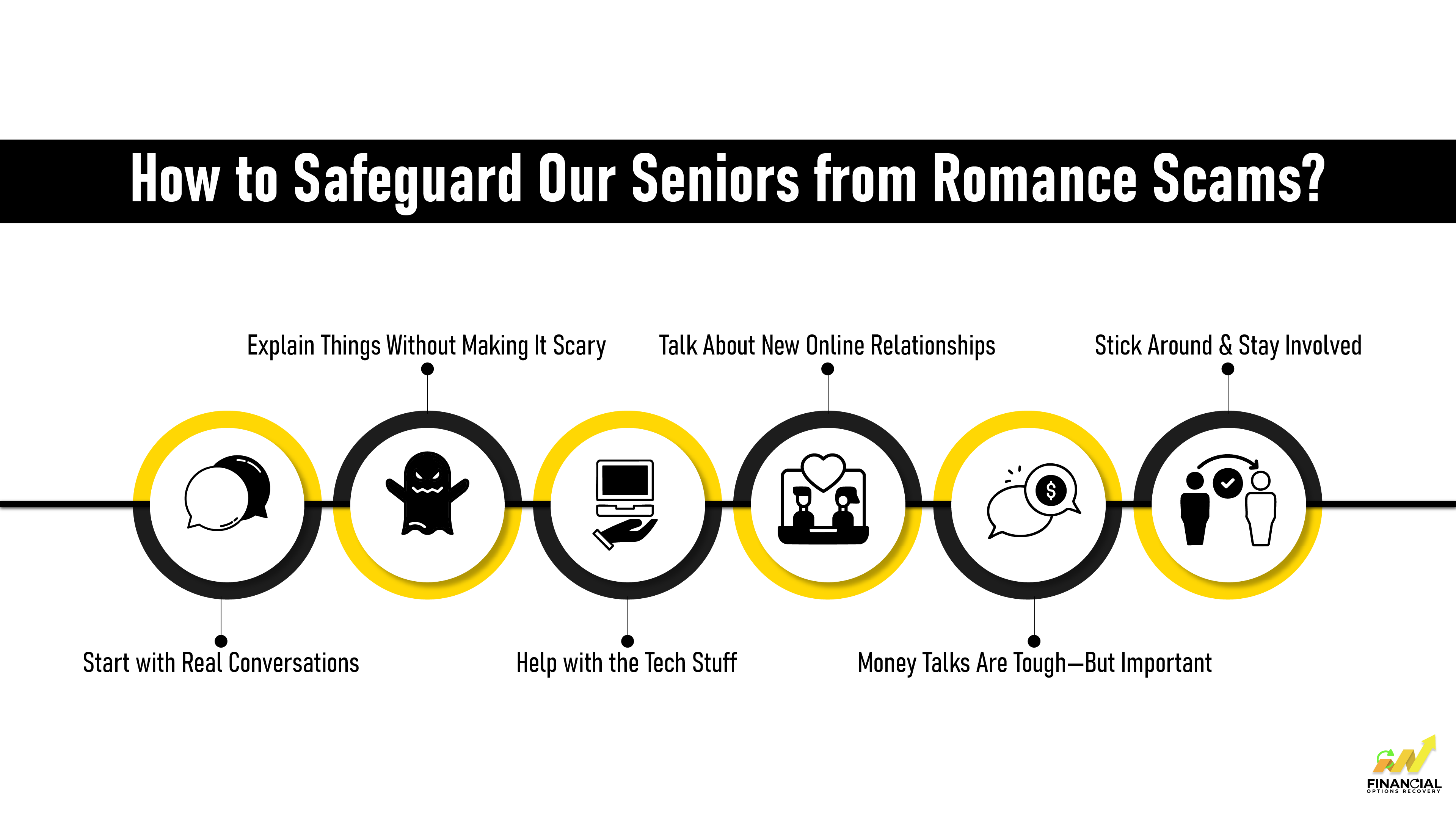
Table of Contents
Most of the time, the first thing we think of when it comes to scams is a suspicious deal or a fishy email. Another sad type of scam affects older adults who use the internet to find friendship and relationships.
It‘s becoming shockingly common for seniors to fall victim to romance scammers, and the results are very bad. They take away money, but they also damage trust, cause serious emotional harm, and in some cases drive victims apart from their own families.
We will describe why elders are more likely to fall for these scams, give examples of what the scams may include, and suggest steps we can take to protect our loved ones.
Why Do Many Romance Scams Affect Older Adults?
There isn’t much deeper to it; loneliness is the primary reason. For many seniors, their isolation is caused by the loss of a partner, their family living elsewhere, or challenges with movement. With the internet and social media, they can connect quickly, meet others, and feel appreciated once more.
Unfortunately, scammers have learned the same thing. It is not an accident that abusers turn to seniors; they want these relationships because the elderly are more likely to be lonely and have money. Having saved money for years, older adults are commonly targeted by fraudsters.
But there’s more to it than just money; your trust is the key as well. When seniors were children, most people were more trusting and supportive of their communities. Because their trusting nature and lack of internet expertise are features, it’s easier for fraudsters to target them.
Most scams begin when someone sends a message on a dating site, social network, or even through email. Scammers will use attractive images that they may have stolen to make a fake profile. Then, it takes weeks or months for the relationship to develop. They understand how to use kind words and how to make you melt.

After the victim is emotionally caught up, the scammer will report a sudden emergency, like a medical bill, missing luggage during travel, or financial trouble for their company. They might not demand much money to start with, but they give you one reason after another to transfer more. Because they trust the person, victims believe they owe them and pay by sending thousands of dollars.
Usually, when someone tries to meet in person or over video, the scammer will come up with excuses about where they are. They make victims feel they cannot discuss the relationship with anyone outside, so they feel even more alone.
What makes these scams cruel is the intimate nature of their effects. Victims do not simply lose funds; they also lose their financial safety, as well as the security and trust that society has in individuals.
Imagine the painful situation of thinking you've found your soulmate. But later they found out that it was all a lie. For many seniors, the uncomfortable realization can cause feelings of embarrassment or shame, which might make someone withdraw from social situations or feel depressed.
Financially, some fall victim, lose lifelong savings, the money they had for retirement, or end up starting new debts for the scammer. It can make their life harder and expose them to other money problems.
Sometimes it’s tricky to realize when things are wrong, because emotions can make things seem better online. Fortunately, some common signs can help you recognize a romance scam before it becomes serious.

If these signs start to appear, take a moment and ask for feedback from a trustworthy person.
Preventing these scams takes a mix of education, communication, and practical steps:

Whatever happens, the victim is not responsible. People who scam others are talented at gaining trust quickly.
The first step is to help the person emotionally. Encourage them to talk about how they’re feeling, and remind them that you care and are there for them.
Giving a report to the Federal Trade Commission (FTC) or your local consumer protection office may protect you and help stop the scammers from stealing money.
Many elders become victims of romance scams because they are taken advantage of through their basic need for love and trust. Yet, by being careful and understanding, we may help our elders avoid scams.
If you know an elderly friend or relative who uses dating sites or social media, make it a point to stay in touch with them regularly. Make it easy for your child to discuss both the individuals they meet and the things they hear.
Following the news and helping one another can help keep scammers from ruining lives. We always make sure to tell our older adults they are precious, admired, and we’re always there for them.
If you or someone you care about has already been affected by a romance scam, don’t face it alone. VisitFinancial Options Recovery to get professional support and explore your options for financial recovery.
Older adults often face loneliness and isolation, making them more trusting and eager for companionship. Their lack of internet experience and financial savings also make them prime targets.
Scammers create fake profiles, build emotional trust over weeks or months, and then ask for money, citing emergencies, avoiding in-person meetings, and encouraging secrecy.
Fast emotional attachment, avoiding video or in-person meetings, inconsistent stories, secretive behavior, and requests for money are key warning signs.
Open conversations, gentle education about scams, tech support with privacy settings, and ongoing emotional support can help seniors stay safe online.
Offer emotional support without blame, help them report the scam to authorities like the FTC, and encourage them to stay connected with trusted friends and family.